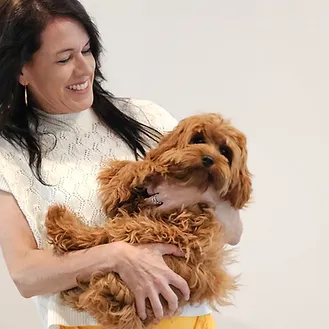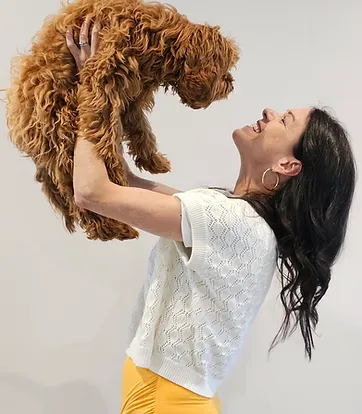Our Therapy Doggo: Obi
It is well-established that pets improve our mental and physical health. At the Selective Mutism Clinic, we recognise the profound impact a fluffy friend can have on the therapeutic journey of both children and adults with Selective Mutism. By integrating therapy animals into our sessions, we create a unique and enriching environment that can be tailored to the needs of every individual.

Builds rapport and REDUCES ANXIETY

Tailored intervention for children
Enhancing adult therapeutic processes
Obi can bring a happy new energy to sessions with clients of all ages. Our adult clients often bond with our pets, fostering a unique connection that adds depth to the therapeutic process.

What to expect
Introduction: A session with a therapy dog begins with a warm introduction to the dog, fostering a sense of familiarity and comfort for both children and adults.
Therapeutic Activities: Our therapy animals actively participate in specially designed activities throughout the sessions, addressing the unique needs of children and adults with Selective Mutism.
Skill Development: Animal therapy sessions, akin to traditional therapies, focus on skill development. The added benefit of animal-assisted interactions enhances the learning experience for both children and adults.
Parental Involvement: We encourage parents to actively participate; learning techniques that support their children at home and reinforce the therapeutic process beyond the clinic.
Gradual Progress: Over the course of treatment, individuals often demonstrate increased comfort and engagement, marking positive strides in overcoming the challenges associated with Selective Mutism.

